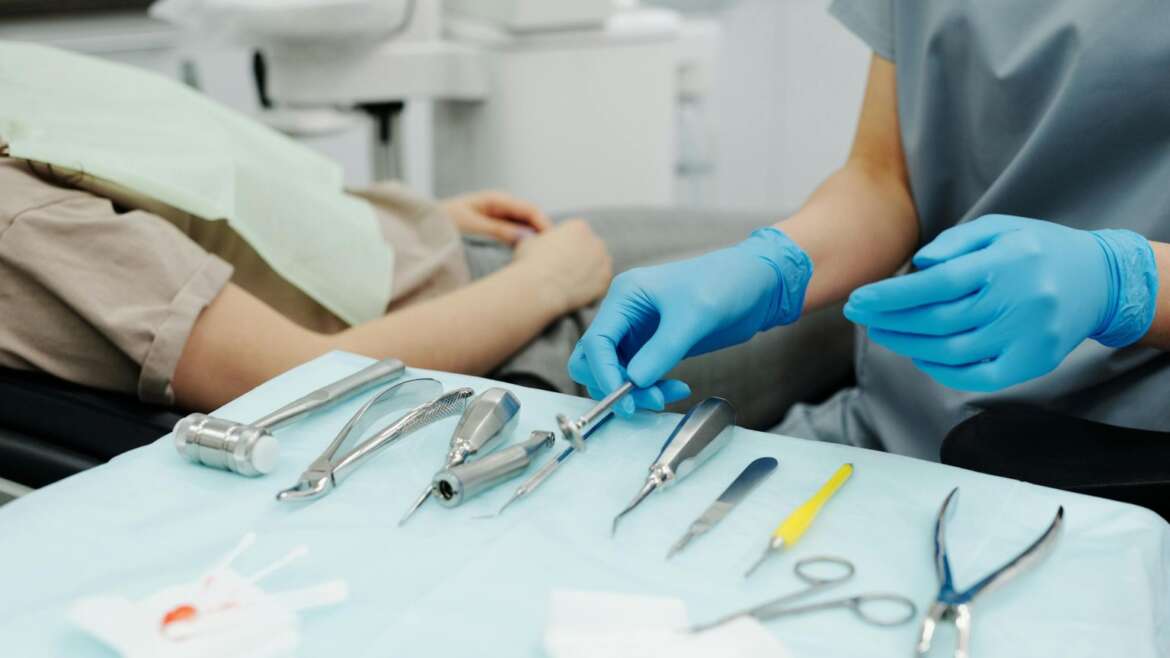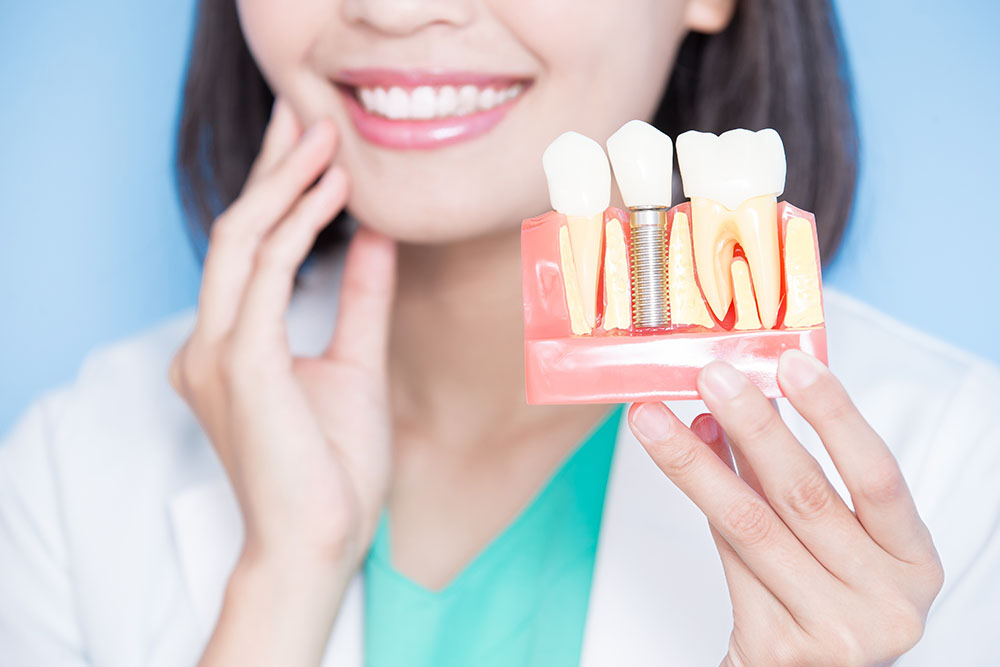Embarking on the journey to restore your smile through dental implants is a transformative decision that brings not only aesthetic enhancements but also a renewed sense of confidence. However, the success of dental implantation hinges significantly on the post-surgery recovery process. In this comprehensive guide, we will walk you through each step of dental implants recovery, offering insights, tips, and a roadmap to ensure a smooth and successful rehabilitation period.
Section 1: Preparing for Dental Implant Surgery
Before delving into the dental implant recovery tips, it’s crucial to understand the pre-surgery preparations. A successful recovery begins with careful planning and preparation.
1.1 Consultation and Treatment Planning: The journey starts with a thorough consultation with your oral surgeon or dentist. During this stage, the dental professional will assess your oral health, discuss treatment options, and create a personalized plan tailored to your specific needs. Understanding the procedure and having realistic expectations is crucial for a positive recovery experience.
1.2 Health Assessment: A comprehensive health assessment is essential to determine your eligibility for dental implant surgery. Conditions such as diabetes or heart disease may impact the healing process, and your surgeon will need to adjust the treatment plan accordingly.
1.3 Pre-operative Instructions: Following the surgeon’s pre-operative instructions is vital to minimize potential complications. These instructions may include dietary restrictions, discontinuation of certain medications, and other guidelines to ensure optimal conditions for surgery.
Section 2: The Dental Implant Surgery
2.1 The Procedure Itself: Dental implant surgery is typically performed in stages, involving the placement of the implant fixture into the jawbone. Depending on your case, a bone graft may be necessary to ensure a sturdy foundation for the implant. The surgery is often conducted under local anaesthesia, ensuring a painless experience.
2.2 Immediate Post-Surgery Care: Once the surgery is complete, immediate post-surgery care is crucial. You may experience some swelling, discomfort, or minor bleeding, which is normal. Applying ice packs, taking prescribed pain medications, and following post-operative care instructions will help manage these initial side effects.
Section 3: Initial Days of Recovery
3.1 Managing Discomfort: In the first few days of dental implants recovery time, it’s common to experience discomfort and swelling. Strictly adhering to the prescribed pain medication regimen and applying ice packs can alleviate these symptoms. Rest is paramount during this period to allow your body to focus on healing.
3.2 Dietary Considerations: Soft and easily chewable foods are recommended in the dental implant recovery diet. Avoiding hot and spicy foods, as well as crunchy or hard textures, is crucial to prevent irritation or damage to the surgical site. Adequate hydration is essential for overall healing.
3.3 Oral Hygiene: Maintaining good oral hygiene is crucial, but it should be done with care. Your dentist may recommend a specific oral rinse to keep the surgical area clean. It’s important to avoid vigorous brushing near the implant site to prevent irritation.
Section 4: Weeks 1-2
4.1 Follow-up Appointments: Scheduled follow-up appointments with your oral surgeon or dentist are essential during the first couple of weeks. These appointments allow the dental professional to monitor your progress, address any concerns, and make necessary adjustments to the treatment plan.
4.2 Gradual Resumption of Normal Activities: While rest is crucial in the initial days, as you progress through the first two weeks, you can gradually resume light activities. However, it’s essential to avoid strenuous physical activities that may compromise the healing process.
Section 5: Weeks 3-6
5.1 Incorporating Regular Oral Care: As the initial healing progresses, you can resume gentle brushing and flossing. Your dentist will guide you on the appropriate techniques to ensure thorough oral hygiene without causing any harm to the implant site.
5.2 Diet Advancement: With the approval of your oral surgeon, you can slowly reintroduce a more varied diet. However, it’s still advisable to avoid extremely hard or sticky foods that could put undue stress on the implants.
Section 6: Months 2-6
6.1 Implant Osseointegration: During this phase, the dental implant undergoes a crucial process called osseointegration. This involves the fusion of the implant fixture with the surrounding bone, providing a stable foundation for the final restoration. Your dentist may schedule periodic check-ups to monitor osseointegration progress.
6.2 Provisional Restoration: In some cases, a temporary crown or bridge may be placed during this period to enhance aesthetics and functionality while the final restoration is being fabricated. Your dentist will guide you on how to care for these provisional restorations.
Section 7: Beyond 6 Months
7.1 Final Restoration Placement: Once the osseointegration process is complete, your dentist will proceed with the placement of the final restoration. This could be a crown, bridge, or denture, depending on your specific case. The final restoration is custom-made to match your natural teeth, providing a seamless and aesthetically pleasing result.
7.2 Long-term Maintenance: Maintaining good oral hygiene and attending regular dental check-ups are crucial for the long-term success of your dental implants. Your dentist may recommend periodic professional cleanings and imaging to ensure the ongoing health of your implants and surrounding tissues.
FAQs:
1. How long does the dental implant recovery process typically take?
The duration of dental implant recovery varies based on individual cases, but it generally involves several stages over a period of months. Initial healing takes a few days to weeks, with osseointegration extending over several months. The complete process, including the placement of the final restoration, can take anywhere from 3 to 6 months or more.
2. What can I do to minimize discomfort during the first few days of recovery?
To alleviate discomfort after dental implant surgery, it’s essential to follow post-operative care instructions diligently. This may include taking prescribed pain medications, applying ice packs to reduce swelling, and adhering to a soft-food diet. Rest and avoiding strenuous activities also contribute to a smoother recovery experience.
3. Are there specific dietary restrictions during the recovery period?
In the initial days following surgery, it’s recommended to stick to soft and easily chewable foods to prevent irritation or damage to the surgical site. As the recovery progresses, patients can gradually reintroduce a more varied diet. However, it’s crucial to avoid extremely hard or sticky foods that may put stress on the implants, especially during the first few weeks.
4. When can I resume my regular oral hygiene routine after dental implant surgery?
While the initial days require careful handling to avoid irritation, you can gradually resume regular oral hygiene practices. Your dentist will guide you on the appropriate brushing and flossing techniques to ensure thorough cleaning without causing harm to the implant site. This typically begins within the first few weeks after surgery.
5. Is there a risk of complications during the dental implant recovery process?
While complications are rare, it’s essential to be aware of potential risks. Factors such as overall health, adherence to post-operative care, and lifestyle choices can influence the likelihood of complications. Regular follow-up appointments with your oral surgeon or dentist allow for monitoring and early intervention if any issues arise, ensuring a successful and uneventful recovery.
Conclusion:
Embarking on the journey of dental implant recovery requires patience, commitment, and adherence to post-surgery guidelines. A beautiful and functional smile awaits those who approach their dental implant recovery with diligence and care, providing a lasting investment in oral health and overall well-being. If you have any questions on dental implant recovery and pain, talk to our experts today.



